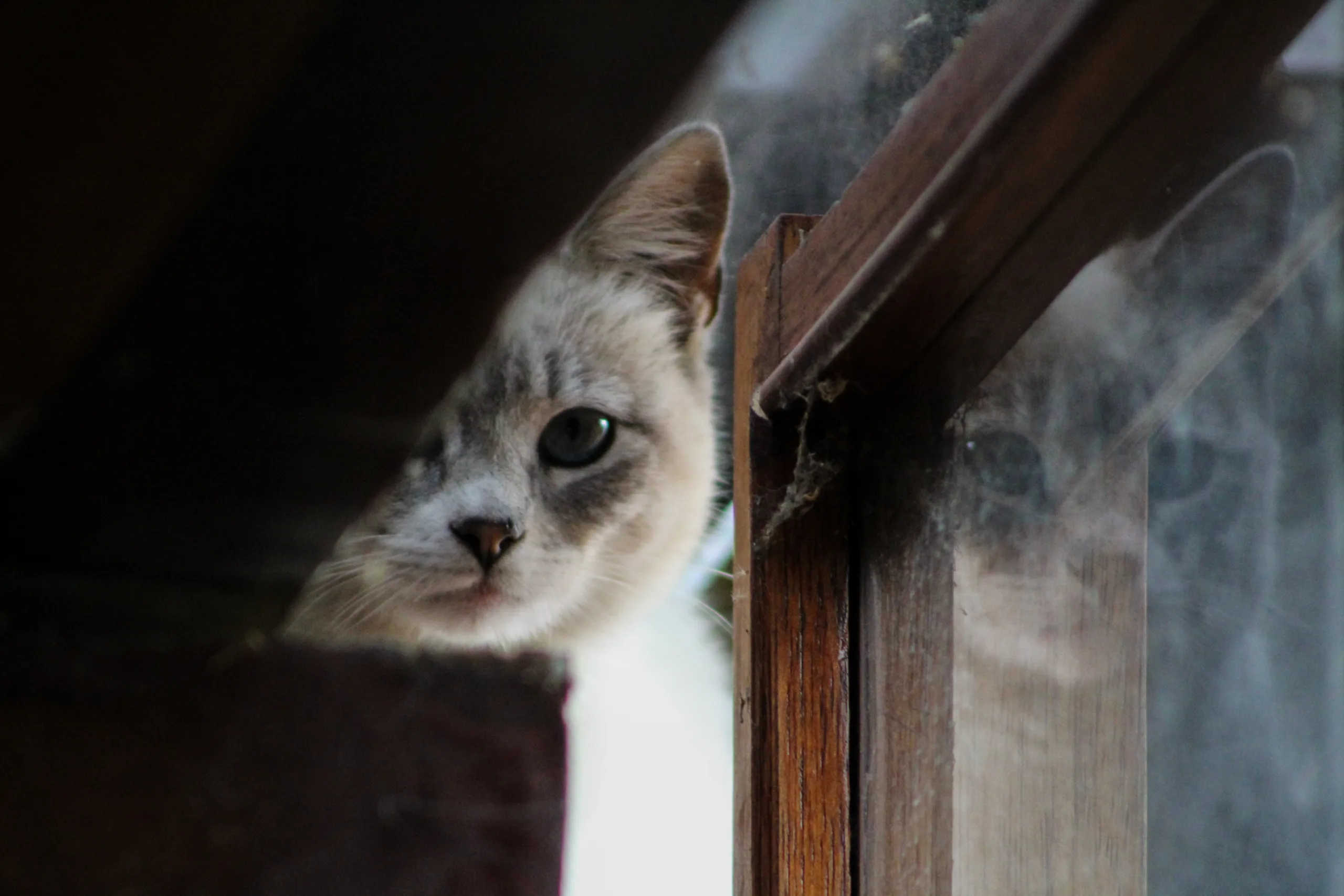Do Cats Hide When They Are Sick? Cats have mastered the art of masking their discomfort, and when it comes to illness, they often exhibit a behavior that can perplex and worry their human companions: hiding. The instinct to conceal vulnerability is deeply ingrained in felines, making it challenging for pet owners to detect signs of illness early on. In this article, we’ll explore the reasons behind cats’ tendency to hide when sick, how to approach the situation, and the signs that can indicate your feline friend is suffering.
For more about cats click here
Why Do Cats Hide When They Are Sick?
Cats’ instinctual behavior to hide when sick has roots in their wild ancestors’ survival tactics:
- Self-Preservation: In the wild, displaying vulnerability could attract predators. Cats have retained this instinct, often seeking secluded spots to protect themselves when they feel unwell.
- Stress and Fear: Illness can be stressful for cats, and unfamiliar or loud environments can exacerbate their discomfort. Hiding in a familiar and quiet place can help alleviate stress.
- Reduced Energy: When sick, cats might experience fatigue and weakness. Hiding provides a chance to conserve energy and rest without being disturbed.
How Long Do Cats Hide When They Are Sick?
The duration of hiding when a cat is sick can vary widely:
- Severity of Illness: The more severe the illness, the longer a cat might hide. Acute illnesses might lead to temporary hiding, while chronic conditions might result in more extended periods of seclusion.
- Individual Variation: Every cat is unique. Some might hide for just a few hours, while others could remain hidden for days.
- Treatment and Environment: Early intervention and a comfortable, stress-free environment can encourage a sick cat to come out of hiding sooner.
Why Do Cats Hide More When Sick?
Cats might hide more when they are sick due to heightened stress, discomfort, and a desire for solitude:
- Discomfort: Cats might experience physical discomfort due to illness, leading them to seek a quiet and concealed space for relief.
- Avoiding Attention: Cats are sensitive to changes in their environment and may perceive attention from humans or other pets as a potential threat when they are feeling vulnerable.
- Instinctual Behavior: Hiding is an instinctual response for cats to protect themselves and avoid confrontation when they are weakened by illness.
Should You Let a Sick Cat Hide?
While allowing a sick cat to hide respects their natural instincts, it’s essential to strike a balance:
- Monitoring: Allowing your cat to hide is fine, but keep a close watch on their behavior and overall well-being. Make sure they have access to water, food, and a litter box.
- Interaction: Gently approach your cat and offer comforting interactions, such as softly talking or providing a treat. Respect their boundaries and avoid forcing them out of hiding.
- Veterinary Care: If your cat’s condition doesn’t improve or if you notice concerning symptoms, seek veterinary care promptly.
Will a Sick Cat Cuddle?
Cats’ behavior toward cuddling when sick can vary:
- Dependent on the Cat: Some cats might seek comfort and warmth from their human companions when they are sick, while others might prefer solitude.
- Comfort Zone: Pay attention to your cat’s cues. If they usually enjoy cuddling and suddenly avoid it, it could be a sign that they are not feeling well.
What Are 4 Signs Your Cat Is Suffering?
Detecting signs of suffering in a cat requires attentive observation:
- Changes in Behavior: If your cat suddenly becomes lethargic, withdrawn, or unusually aggressive, it could indicate distress.
- Appetite and Thirst: A significant change in eating or drinking habits can signal illness.
- Altered Grooming Habits: A sick cat might groom excessively or neglect grooming altogether.
- Vocalization: Unusual vocalizations, excessive meowing, or signs of discomfort while urinating or defecating can suggest an issue.
External Resources for Cat Health and Behavior
For further insights into understanding your cat’s health and behavior, consider exploring these resources:
- American Association of Feline Practitioners – Cat Health
- The Cat Site – Understanding Your Cat’s Behavior
Frequently Asked Questions About Cats Hiding When Sick
Q1: How long do cats hide when they are sick? The duration of hiding varies depending on the severity of the illness, the cat’s individual behavior, and the environment.
Q2: Why do cats hide more when sick? Cats might hide more when sick due to heightened stress, discomfort, and instinctual behavior to protect themselves.
Q3: Should you let a sick cat hide? Allowing a sick cat to hide respects their instincts, but monitor their well-being and seek veterinary care if needed.
Q4: Will a sick cat cuddle? Some sick cats seek comfort through cuddling, while others might avoid it. Observe your cat’s behavior for cues.
Q5: What are 4 signs your cat is suffering? Changes in behavior, appetite, grooming habits, and unusual vocalizations can indicate that a cat is suffering.
In Conclusion
Cats’ tendency to hide when they are sick is deeply rooted in their survival instincts. Understanding this behavior can help you provide appropriate care and support for your feline companion during their times of vulnerability. While respecting your cat’s need for solitude, it’s crucial to monitor their condition, offer comfort, and seek veterinary attention if you notice any concerning changes in behavior or health. By being attentive to your cat’s cues and acting with empathy, you can ensure their well-being and strengthen the bond you share.
